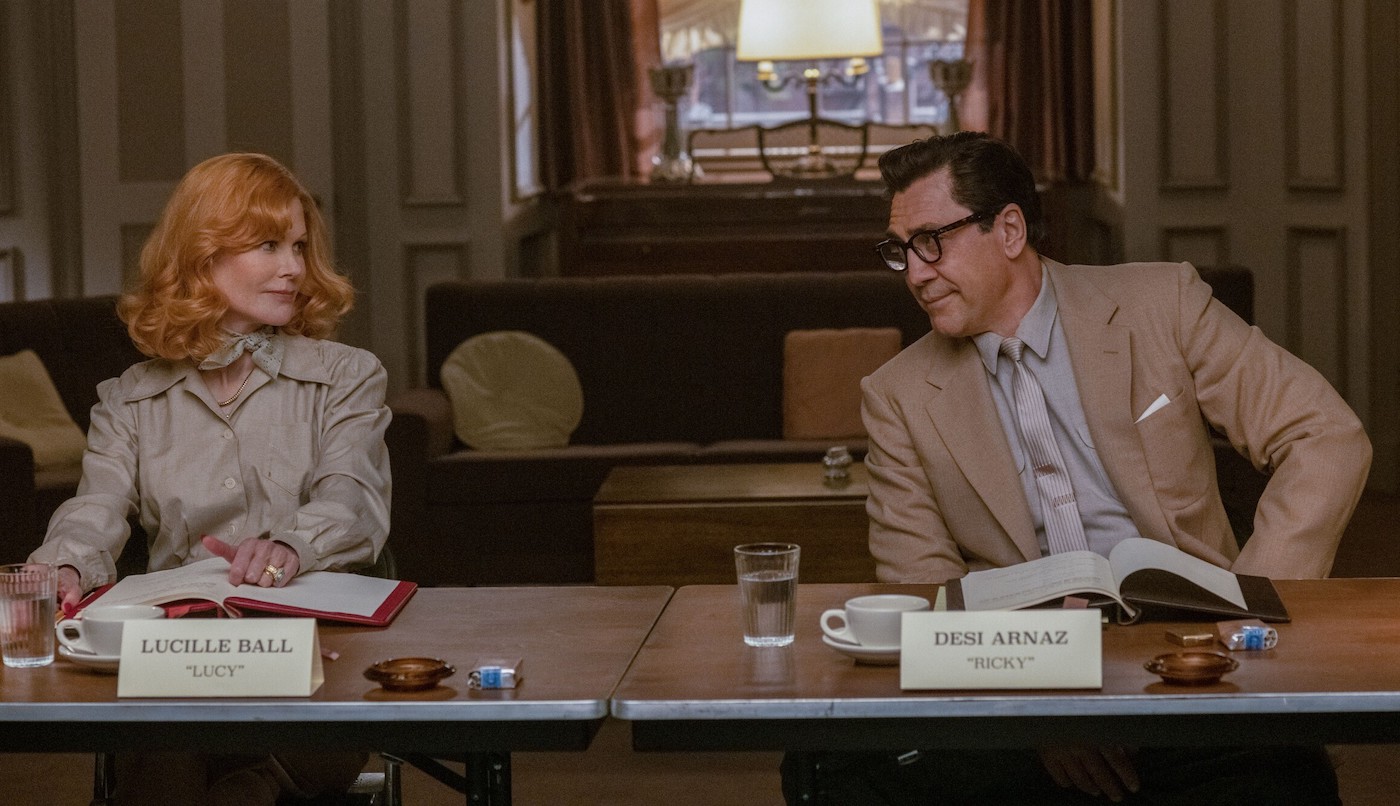It seems that no movie escapes some sort of controversy these days and Aaron Sorkin’s Being the Ricardos is no exception. The writer-director’s semi-biographical take on one turbulent week in the lives of legendary entertainers Lucille Ball and her husband Desi Arnaz as they produce an episode of I Love Lucy was in the barrel almost from the start due to Sorkin’s casting choices.
Originally set to star Cate Blanchett as the iconic Ball, Being the Ricardos went through a lengthy development process that resulted in Blanchett having to step away. Sorkin cast Nicole Kidman as Ball and Javier Bardem as Arnaz, with the usual small but loud bevy of armchair critics on social media slamming Sorkin’s choices for reasons ranging from Kidman not looking enough like Ball to Bardem being Spanish and not Cuban like Arnaz.
The idea of letting users on social media dictate casting choices, or at least sway public opinion against a project sight unseen because of their issues with whom a filmmaker selects for a role, is anathema to Sorkin.
“I don’t use Twitter as my casting director,” he says. “I use Francine Maisler. Francine and I both have the advantage of having read the script and knowing what the movie is about before we cast it. I don’t know who the people are on Twitter and I know that they haven’t read the script, don’t know what the movie is about. They’re assuming it’s something else. They’re assuming I’m casting Lucy Ricardo and not Lucille Ball. It’s just so much graffiti to me.”
As for the issue of whether Sorkin should have went after a Cuban actor to play Arnaz, instead of the Spanish-born Bardem, that is part of a much thornier ongoing debate. Actors have withdrawn from projects after public outcries over similar situations, most notably Scarlett Johansson, who pulled out of a movie about trans man Dante “Tex” Gill because social media users protested a cisgender woman playing a transgender man.
While there’s been no question that Hollywood should do more to cast a wider, more diverse net when it comes to hiring talent in general, and while there are opportunities where the player and the role are perfectly aligned (such as Alaqua Cox, a Deaf Native American playing Echo, also a Deaf Native American, in Marvel’s Hawkeye series), Sorkin feels that a) it’s down to who can do the best job in the role and b) certain attributes of a person are not things that one can “act.”
“[If you say] a straight guy can’t play gay, and a cisgendered person can’t play a transgender person, that way lies lunacy,” Sorkin explains. “That way lies absolute madness. Cuban and Spanish aren’t actable things, and neither is straight or gay.”
Sorkin elaborates, “If I’m directing you in a scene and I tell you, remember, you are freezing cold, you’ve been sitting in subzero temperatures for hours, your teeth are chattering, you can barely feel your face and you’ve got to tell your friend about the secret treasure map, use the cold as something you have to fight against to do this. That’s all actable. That’s active. If I say, let’s do it again but this time be Cuban, that is not actable. You can do an accent, but that’s it.”
Sorkin continues, “You can act being attracted to someone, but you can’t act straight. You can’t act gay. You can do some campy version of being macho or being effeminate, but that has nothing to do with straight or gay. So this idea that the actor’s own biography has to fit the biography of the character is not just silly, it’s taking us down a dangerous path. That of all people, people in the artistic community should want to start taking steps towards segregation, is beyond belief to me.”
Sorkin’s argument is in many ways a reasonable one. The problem is that Hollywood has been a one-way street forever, heavily predicated on a star system: sure, many A-list stars could go in and probably nail most characters they’re offered, but there’s been little to no opportunity for other actors–straight, gay, non-binary, or otherwise–to get a chance to read for the same role or others.
The director cites past instances of clearly racist or stereotypical performances as examples of what entertainers should continue to avoid.
“We know when we’re being demeaning, right?” Sorkin asks. “We understand why blackface is demeaning, that it has a historical context and that you’re making an unflattering cartoon character. We know why Mickey Rooney in Breakfast at Tiffany’s was offensive. It was for the very reason that he was [doing the role]. We know when we’re being demeaning. Javier Bardem playing Desi Arnaz is not being demeaning because the job wasn’t to play Cuban. It was to play Desi Arnaz.”
Being the Ricardos is streaming now on Amazon Prime Video.
